
Orthopedic treatment getting easier-Indian surgeon Sharma

Chairperson of Indian Orthopedic Association, senior orthopedic surgeon Prof Dr Rajeev K. Sharma said the treatment of orthopedic disease was getting easier and simpler.
Prof Dr Sharma who has already worked as a faculty and surgeon at the New Delhi-based All India Institute of Medical Sciences (AIIMS) and Apollo Hospital, among others has recently arrived in Kathmandu for a conference of surgeons.
In course of a conversation with him on the occasion, he said, “The human orthopedic treatment has not been as complicated as it was. It is gradually getting easier. Whether that be bodily organs and joints or knee; transplant or replant is made possible through the adoption of high-tech medical process. The medical research and technology has made it possible”, Sharma said.
Sharing his recent experience in transplanting hip on a 94-year-old person, joint replacement surgeon Dr Sharma said, “We have been fairly undertaking joint replacement among children and ageing people. Primarily, there was a dilemma whether or not such complicated surgery should be performed on the elderly people. But, the patient was willing for replacement. I did the replacement which went successful. There was no issue in the replaced organ, he was happy. It gave me immense pleasure”.
In the past, such orthopedic issues used to be treated through surgical measures. The ‘replacement’ method has turned advanced these days which made it convenient.
With this, joint transplant has become possible and general for the patients ranging from minors to elders, he mentioned. The medical technology is feasible if the people are ready for transplant. Merely needed is perfect hand of the doctor.
Veteran doctor Sharma said he found people were still showing hesitation to transplant organs. “People are still critical of the success in transplant cases. They are not even ready for this in the beginning”, Prof Sharma recounted.
“Normally people are fearful of possible infection or subsequent complications. But now, the medical genre has gained much success. I have seen wider public awareness on the advancement taking place in the sector”.
He went on saying that people were not generally ready for transplant measure due to fear of immoderate pain, durability of the replaced organ and frequent transplants.
With the advancement of the technology now, any competent doctor can smoothly carry out joint transplant without rendering pain to the patient, he noted.
Dr Sharma, who is now working as a joint replacement expert at Moolchand Medcity, Lajpat Nagar, New Delhi further claimed that any orthopedic patient visiting him has not returned without recovery.
On a query why people are getting fragile bone these days, he replied, “Primary thing is food. Our body has become a house of disease due to the pursuit of comfort life or the habit of eating for taste. It is also applicable in the case of bone. The worsening eating habit has made our bones fragile”.
Over intake of junk and fast food has significant implications for bone health. Obesity is one the leading causes of fragile bones. The excess weight places an undue load on the bones, contributing to their fragility.
The diminishing culture of physical exercise, with increasing ‘table work culture’ has posed further challenges for bone health. Reduced physical mobility translates to less exercise for the bones, gradually weakening them over time. Nutrition deficiency, particularly a lack of calcium, coupled with the trend of indoor lifestyles due to hectic schedules, further contributes to low bone density.
Smoking is a major factor in bone fragility, and the growing popularity of “Gym” culture is not advisable for bone health. In contrast, alternatives such as cycling or swimming are recommended for maintaining healthy bones and joints.
Dr. Sharma, a distinguished orthopedic expert with over 30 years of experience and a Gold medalist in Ortho in MS, sees the need of ensuring widely accessible treatment facilities. He advocates for healthcare coverage through insurance schemes to ensure that medical interventions are within reach for everyone. Civic awareness and education play a vital role in preventing orthopedic issues, according to Dr. Sharma.
He has so far performed over 15,000 total joint replacements, including a hip replacement for Nepal’s former President, Bidya Devi Bhandari. The former President had to undergo her hip replacement due to cancer.
Dr Sharma who is considered a pioneer and opinion leader in the field of Orthopedics and joint replacement has been a frequent visitor to Nepal and observes transplant literacy is increasing in the Himalayan country.
Few years ago he was honoured with the Janasewa Shree Padak (towards foreign national category) by the Government of Nepal in recognition of his contributions to the medical sector in Nepal.
Dr Sharma has been a contributor to the treatment of orthopedic issues in Nepal. Medical Director at Jorpati-based Nepal Orthopedic Hospital Dr Kailash Bhandari said the hospital has been repeatedly receiving support and cooperation from Dr Sharma.
Dr Bhandari further informed the orthopedic surgeon has been engaged in sharing the advanced technology and treatment methods in the field of orthopedics with medical professionals in Nepal.

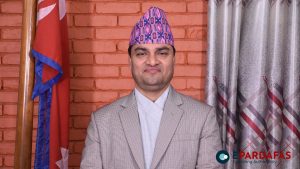
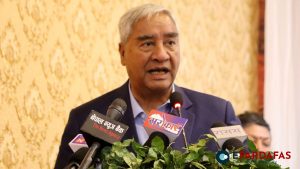
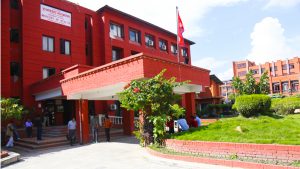
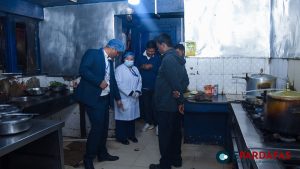




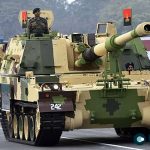


Comments